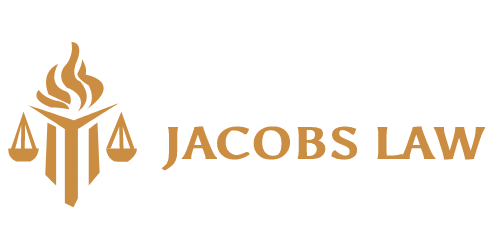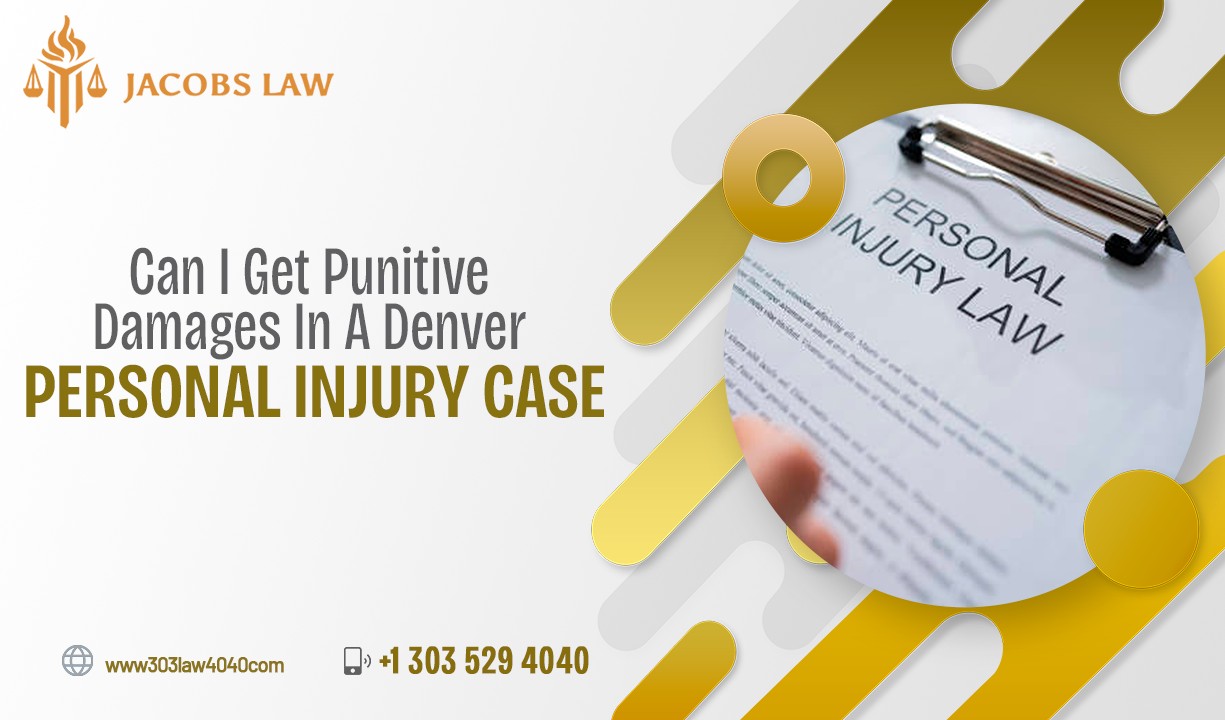Personal injury cases are an unfortunate reality in our modern and fast-paced world. Accidents, negligence, and carelessness can cause or cause significant physical, emotional and financial harm to individuals. Denver, as a bustling and rapidly growing city, is no exception to this trend. When you or a loved one suffers a personal injury due to the actions of someone else, the legal system exists to provide a means to obtain compensation and justice.
In Denver, as in the rest of the United States, personal injury cases involve a wide range of incidents, from car accidents and slip-fall accidents to medical malpractice and product liability claims. These cases revolve around the concept of negligence or intentional wrongdoing, where the actions or actions of one party cause harm to another party. The primary goal of personal injury cases is to provide compensation to the injured party for their losses, which can include medical expenses, lost wages, pain and suffering, and more.
In some personal injury cases, the injured party may seek punitive damages in addition to compensatory damages. Punitive damages, often known as exemplary damages or retaliatory damages, serve a different purpose than compensatory damages. Unlike compensatory damages, which aims to make the injured party whole by compensating them for their losses, punitive damages aim to punish the wrongdoer and deter them from repeating their negligent or intentional actions.
This article will shed light on the world of personal injury cases in Denver, Colorado and explore the concept of punitive damages in more depth. We’ll discuss what punitive damages are, when they can be awarded, and the factors that come into play when determining whether they are appropriate in a personal injury case.
Understanding Personal Injury Cases in Denver
Before diving deeper into the concept of punitive damages, it is important to understand the basics of personal injury cases in Denver.
Elements of a Personal Injury Case
Personal injury cases typically include the following key elements:
Duty of Care: The defendant (the party being sued) owes a duty of care to the plaintiff (the injured party). This means that they had a legal obligation to act in a way that did not harm others.
Breach of Duty: The defendant breached its duty of care by either acting negligently or intentionally causing harm to the plaintiff.
Reason: The breach of duty directly caused the plaintiff’s injuries.
Damages: Actual damages suffered by the plaintiff, which may include medical expenses, lost wages, pain and suffering, and other damages.
Types of Personal Injury Cases
Personal injury cases in Denver cover a wide range of incidents, including, but not limited to:
- Car Accidents
- Motorcycle Accidents
- Truck Accidents
- Slip and Fall Accidents
- Dog Bite
- Medical Malpractice
- Product Liability
- Premises Liability
- Wrongful Death
Each type of personal injury case has its own unique set of circumstances and legal considerations. The specific details and evidence required can vary significantly from case to case.
Compensatory Compensation
The primary goal in personal injury cases is to seek compensatory damages. These damages are designed to compensate the injured party for their losses. These can be divided into two categories:
Economic Damages: These are quantifiable damages, such as medical bills, lost wages, and property damage.
Non-Economic Damages: These are less tangible damages, which include pain and suffering, emotional distress, and loss of enjoyment of life.
The purpose of compensatory damages is to help the injured party recover as much as possible and return to their pre-accident condition.
What Are Punitive Damages?
Punitive damages, unlike compensatory damages, are not focused on compensating the injured party for their losses. Instead, they serve a different purpose: punishment and deterrence. The purpose of these damages is to punish the defendant for their particularly egregious behavior and to discourage them and others from repeating such actions.
Key points to understand about punitive damages in personal injury cases include:
Objective
Punishment: Punitive damages are meant to punish the defendant for their wrongful conduct, especially if their actions were malicious, intentional, or reckless.
Deterrence: These damages are also intended to deter the defendant and others in a similar situation from engaging in similar harmful conduct in the future.
Availability
Punitive damages are not available in all personal injury cases. Their award is generally reserved for cases in which the defendant’s actions are particularly serious. Examples of situations where punitive damages may be considered include:
Intentional Misconduct: If the defendant intentionally acted with a malicious or vindictive purpose, punitive damages may be more likely.
Gross Negligence: When the defendant’s actions demonstrate a disregard for the safety of others, punitive damages may be considered.
Fraud or Deceit: Punitive damages may be more likely to be awarded in cases involving fraud or deceitful conduct.
Legal Standards For Awarding Punitive Damages
The legal standards for awarding punitive damages may vary from state to state. In Colorado, where Denver is located, legal standards are guided by the Colorado Supreme Court’s decision in the case “Morse v. Johns”.
The Morse v. Johns case established the following principles for punitive damages:
- Punitive damages must be proportionate to the wrongful conduct of the wrongdoer.
- Punitive damages are appropriate when the defendant’s actions were wanton, intentional, reckless, or malicious.
- Punitive damages must not be excessive, and the defendant must not be bankrupt.
- The amount of punitive damages awarded in a personal injury case can be affected by several factors, including the seriousness of the wrongful conduct and the financial resources of the defendant.
Determining The Amount of Punitive Damages
When punitive damages are deemed appropriate, calculating them can be a complex process. Courts generally consider several factors when determining the amount, including:
- The gravity of the defendant’s misconduct
- Amount of damage caused to the plaintiff
- Defendant’s financial resources
- Need for prevention and punishment
- Punitive damages can vary widely, and there are constitutional limits to prevent excessive awards.
Examples of Punitive Damages Cases
To better understand the concept of punitive damages, let’s examine some real examples of personal injury cases in Denver where punitive damages were awarded:
Accident Due to Drunk Driving
Imagine a scenario where a person gets seriously injured in a car accident caused by a drunk driver. In this case, punitive damages may be appropriate due to the defendant’s gross negligence and reckless behavior. A drunk driver knowingly puts others at risk by driving while impaired, making their actions eligible for punitive damages.
Medical Malpractice
In a medical malpractice case, punitive damages may be considered if a healthcare provider was negligent of a patient’s safety or committed a harmful act with malicious intent. These damages are designed to hold healthcare professionals accountable for their serious misconduct.
Hazardous Products Liability
Suppose a manufacturer knew of a product defect that could cause serious harm but failed to recall the product or adequately warn consumers. In such a product liability case, punitive damages may be appropriate, because the company’s gross negligence puts the public at risk and requires punishment and deterrence.
Punitive Damages in Colorado: Legal Limits
Colorado, like many other states, has limits on punitive damages to ensure that they are fair and reasonable. These limits are necessary to prevent excessive awards that could potentially bankrupt the defendant.
Key points to consider regarding punitive damages in Colorado:
Limit on Punitive Damages
In Colorado, there is a statutory limit on punitive damages. Under state law, the maximum amount of punitive damages that can be awarded is the greatest of:
- Actual damages awarded to the plaintiff
- $500,000
This means that punitive damages cannot exceed the total compensatory damages awarded to the injured party, and they cannot exceed $500,000, even if the compensatory damages are less than that amount.
Exception For Willful Misconduct
There is an exception to the cap on punitive damages in cases of willful misconduct. If the defendant’s misconduct is found willful, the cap may not apply, and punitive damages may exceed $500,000.
Judicial Review
Colorado’s law also requires judicial review after a hearing of punitive damage awards. The court reviews the award to determine whether it is excessive, considering factors such as the seriousness of the defendant’s conduct and their financial resources.
Ultimately, the goal of these limits is to strike a balance between punishing wrongdoers and protecting their financial stability. The cap on punitive damages ensures that punishment remains proportionate to the misconduct while avoiding excessive awards.
Consult An Experienced Lawyer
If you have been involved in a personal injury case in Denver and are considering seeking punitive damages, it is essential to consult with an experienced personal injury attorney. An attorney will be well-versed in Colorado’s laws and can help you determine whether punitive damages are appropriate in your case.
The attorney will also work to gather the necessary evidence, present a compelling case, and ensure that your rights are protected throughout the legal process. Given the complex nature of punitive damages, legal expertise is invaluable in maximizing the chances of a successful outcome.
Conclusion
Personal injury cases in Denver, Colorado cover a wide range of incidents, and their primary purpose is to provide injured parties with compensation for their losses. In some particularly serious cases, punitive damages may also be awarded to punish the wrongdoer and deter future misconduct. However, punitive damages are subject to limitations and are only appropriate in cases of willful misconduct or gross negligence.
If you find yourself in a situation where punitive damages may apply, it is important to seek legal advice. An experienced personal injury attorney in Denver can help you navigate the legal system, present a compelling case, and work to secure fair compensation and punitive damages if necessary.

